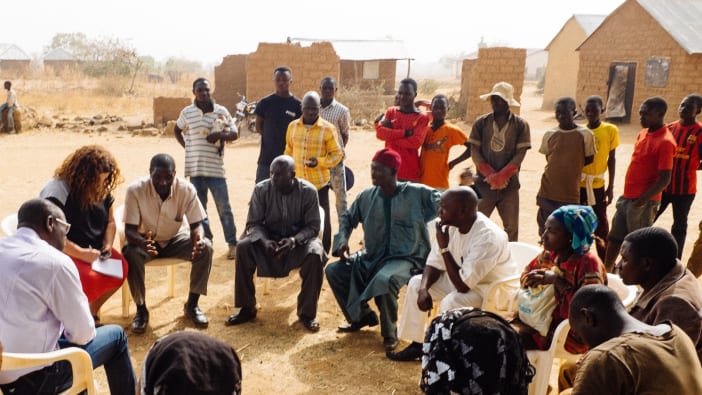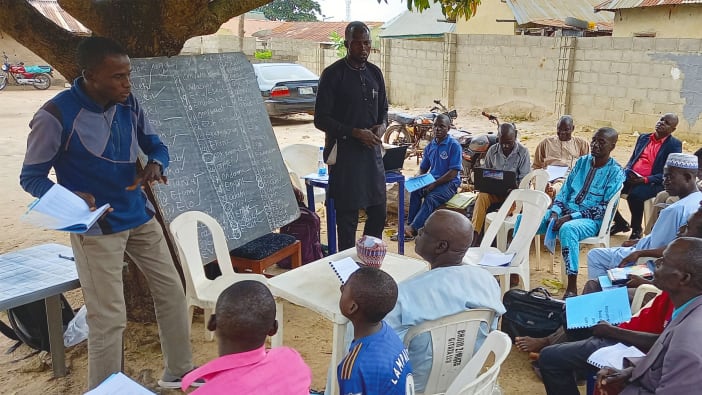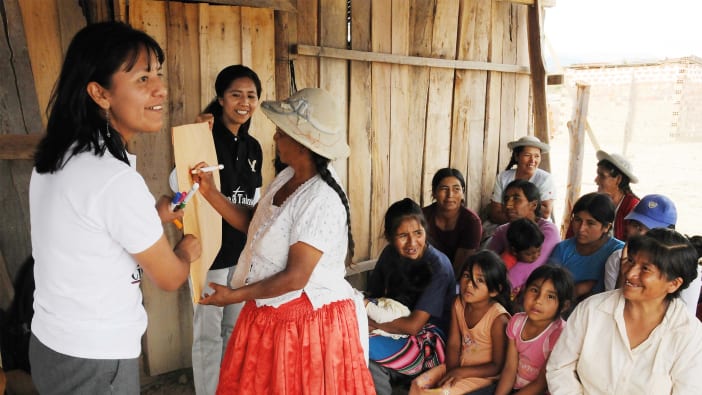by Keith Tondeur.
Managing money is never easy. Families on low or uncertain incomes often struggle to cope with payments such as school fees or healthcare. We often live in societies where articles and advertisements on the radio and TV, or in newspapers and magazines, encourage us to spend money. We are always being told how ‘good’ certain products will make us feel. Increasingly, our societies see success as the possession of wealth, rather than having a good character or serving others.
Jesus talked about money more than anything else! In the Bible there are about 500 verses concerning faith and about 500 on prayer. However, there are 2,350 verses about money and possessions. As Christians, we really need to take managing money seriously. We need to gain an understanding of biblical teaching on money and possessions.
Money within the family
If families do not face up to money worries, there can be all kinds of serious consequences. Money can be a source of conflict in many households. Lack of openness over money can lead to a breakdown of trust. Financial pressures can lead to all kinds of tensions at home. Continuous stress over money can cause various health problems. Many people who are in financial difficulty cut themselves off from their friends, due to pride. Over time, they may lose many of their friends.
The importance of good communication
Relationships can break down if couples do not communicate well about money. Perhaps the wife wants to talk more about their financial situation and her worries. Maybe the husband argues that as he works long hours in order to provide for the family, there is no need to discuss the situation. Couples may not understand or share each other’s priorities. There is often a lack of under-standing between couples in this area.
Without openness and financial planning, a family will struggle even more when they meet a financial crisis. There is a real danger that only one partner, or sometimes neither partner, will take control. This can lead to frustration and resentment. There is nothing wrong with one partner being responsible for the book-keeping, but there should be agreement about all decisions made.
Managing money wisely is a challenge for any household, regardless of their income level. Some of the most common issues faced are:
- planning and keeping to a budget
- saving for the future
- planning when work is temporary and uncertain
- coping with sudden expenses for healthcare, funerals or weddings
- getting out of, and staying out of, debt.
Budgeting
Making a simple budget can help to give a clearer picture of your financial situation. It can help you make your money go further as you may find opportunities to make savings. Budgeting can prevent you getting into debt. Developing a budget together can stop arguments about money and may help prevent financial stresses within the family.
Making a budget
A budget is only useful if it is accurate and you are able to keep to it. Begin with the current situation and be honest. Involve all family members who are old enough to understand. Ask them to record everything they spend, including rent, water, fuel, food, clothes, entertainment and travel. List all the money coming into the household each month and all the money going out. Take account of large payments such as school fees and healthcare that are only made two or three times a year. Can money be saved up regularly to cover these? The more discussion and agreement that takes place, the more likely there is to be cooperation and togetherness. Remember that there will be individual priorities as well as family ones. When the budget is finished, get all the family to check it again. Can anyone think of anything that is missing? Aim to develop a budget that the whole family is happy to try to keep to.
The power of advertisements
Even very poor people will sometimes spend a large part of their income on products that are of no benefit to them-selves or their families, and may even damage their health. These include cigarettes, sodas, beauty creams and alcohol.
- What advertisements in our country tempt people to buy products that are of little or no benefit?
Discussion points
- Do we find it difficult to talk to family members and friends about money? Why is this?
- What does it mean to be rich as a family?
- What kind of wealth does Jesus promise to those who sacrifice things for him and the gospel?
- Why does working hard honour God?
- If we thought of God as our boss, how would it affect our attitude to work?
- How much should we plan and save for the future and how much should we rely on God to provide?
Adapted from the book A family’s guide to better money management by Keith Tondeur. Keith is Director of Credit Action, a UK organisation that aims to give a biblical perspective on understanding and managing money. Credit Action, 6 Regent Terrace, Cambridge, CB2 1AA, UK E-mail: [email protected] Web site: www.creditaction.com









